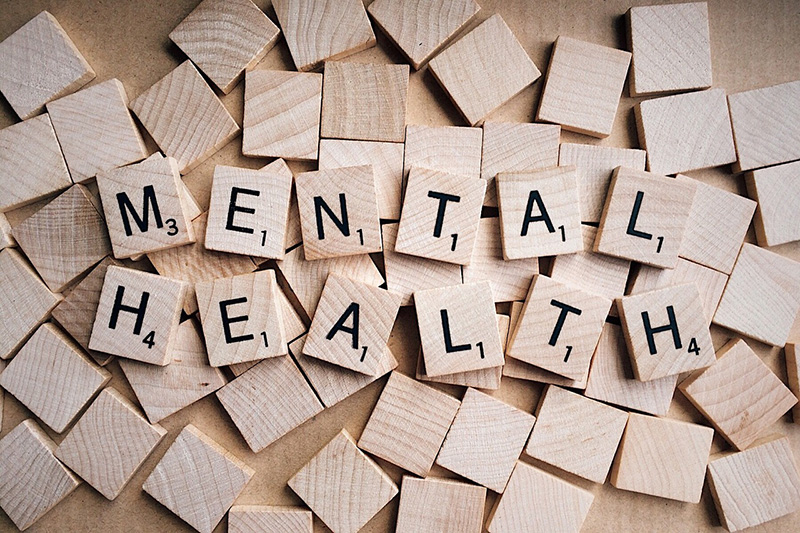Table of Contents
Last Updated on October 4, 2023 by Team Spinfuel
 Mental health, an integral part of our overall well-being, has long been marred by the shadows of stigma and misunderstanding.
Mental health, an integral part of our overall well-being, has long been marred by the shadows of stigma and misunderstanding.
For too long, society has been silent about these unseen struggles, often making those affected feel isolated or shamed.
This post explores the facets of mental health, the damaging impact of stigmas, and the importance of open conversations in fostering a healthier, more empathetic society.
Let us begin this journey of understanding and acceptance, recognizing that mental health is not a distant concept, but something that touches us all.
What Is Mental Health?
Mental health encompasses our emotional, psychological, and social well-being. It affects how we think, feel, and act in different situations.
Just as physical health is crucial for our body to function correctly, mental health is essential for our overall functioning – it allows us to navigate life’s ups and downs with resilience and adaptability.
Mental health is dynamic and can fluctuate throughout our lives, affected by various factors such as genetics, life experiences, and socio-cultural context.
It is a spectrum – we all have mental health, just as we all have physical health.
The Impact of Stigmas
Despite its undeniable significance, mental health continues to be shrouded in stigma and misunderstanding.
Stigma refers to the negative attitudes and beliefs towards individuals with mental health conditions, often leading to discrimination, exclusion, and a lack of understanding.
These harmful perceptions contribute to the silence surrounding mental health, creating barriers for those seeking help or support.
The damaging impact of stigmas is two-fold. Firstly, they can prevent individuals from disclosing their struggles and seeking assistance due to fear of judgment or shame.
The stigma can lead to delayed or inadequate treatment, exacerbating the effects of mental health conditions.
Secondly, stigmas perpetuate a culture of silence and shame, where individuals feel isolated and unable to openly discuss their experiences.
This can further worsen mental health issues as it denies individuals the support and empathy they need.
Conversations are powerful tools for breaking stigmas and promoting understanding.
When we talk about mental health openly and honestly, we begin to normalize the discussion around it.
It allows individuals to feel seen, heard, and understood – a critical factor in reducing feelings of isolation and shame.
Conversations also foster empathy and education, challenging harmful stereotypes and promoting accurate information about mental health.
Moreover, open conversations can lead to improved mental health outcomes for individuals.
By normalizing discussions around mental health, we encourage individuals to seek help and support without the fear of judgment or shame.
All of which can lead to early intervention and appropriate treatment, reducing the harmful effects of untreated mental health conditions.
Initiating Conversations
So how do we start these conversations? It begins with each one of us – by educating ourselves about mental health and speaking up when we see stigmas perpetuated.
We can challenge harmful stereotypes and misconceptions by sharing accurate information and promoting empathy and understanding.
We can also create safe spaces for individuals to talk about their experiences without fear of judgment.
Social media has also become an influential platform for initiating conversations about mental health.
These conversations have sparked immense support, raising awareness and promoting advocacy for better mental health resources.
The Importance of Self-care
As we continue to talk about mental health, it is crucial to recognize the vital role of self-care.
Self-care refers to actions we take to prioritize our physical, emotional, and psychological well-being.
It is essential to understand that self-care is not selfish, but rather a necessary component in maintaining good mental health.
By practicing self-care, we can better manage our stress levels, build resilience, and improve overall well-being.
If you’re struggling with self-care and relaxing, consider a tool like this to help calm you down.
Conclusion
Shattering the stigmas surrounding mental health is a collective endeavor that demands ongoing, open conversations.
By fostering a society that understands and prioritizes mental health, we not only help individuals feel seen and heard, but we also cultivate a community of empathy and acceptance.
It’s time to realize that mental health is as significant as physical health and deserves the same attention and understanding.
As we strive to break these stigmas, let us remember that every conversation we initiate brings us one step closer to a world where mental health is spoken about not in hushed whispers, but with empathy, understanding, and respect.
Related Articles in Spinfuel:
Does CBD Oil Finally Have Verifiable Health Benefits in 2023 ?
A4 Group Review: White Label CBD Europe and Private Label Solutions








